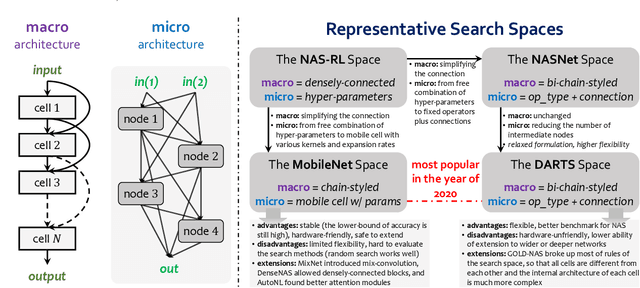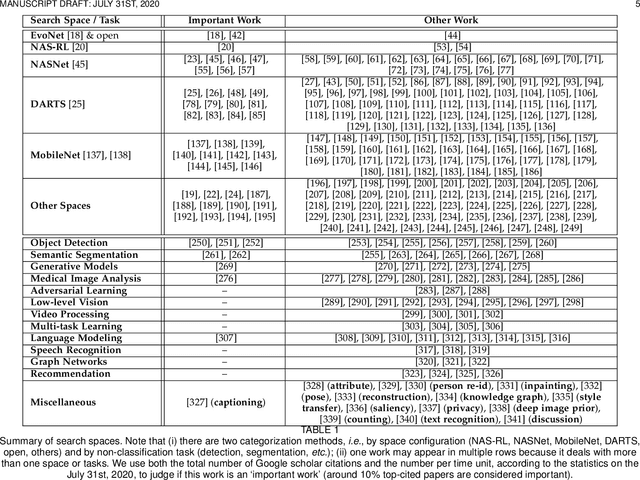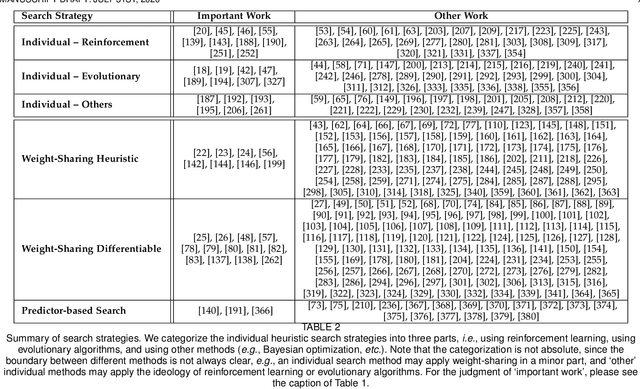Weight-Sharing Neural Architecture Search: A Battle to Shrink the Optimization Gap
Paper and Code
Aug 05, 2020



Neural architecture search (NAS) has attracted increasing attentions in both academia and industry. In the early age, researchers mostly applied individual search methods which sample and evaluate the candidate architectures separately and thus incur heavy computational overheads. To alleviate the burden, weight-sharing methods were proposed in which exponentially many architectures share weights in the same super-network, and the costly training procedure is performed only once. These methods, though being much faster, often suffer the issue of instability. This paper provides a literature review on NAS, in particular the weight-sharing methods, and points out that the major challenge comes from the optimization gap between the super-network and the sub-architectures. From this perspective, we summarize existing approaches into several categories according to their efforts in bridging the gap, and analyze both advantages and disadvantages of these methodologies. Finally, we share our opinions on the future directions of NAS and AutoML. Due to the expertise of the authors, this paper mainly focuses on the application of NAS to computer vision problems and may bias towards the work in our group.
 Add to Chrome
Add to Chrome Add to Firefox
Add to Firefox Add to Edge
Add to Edge